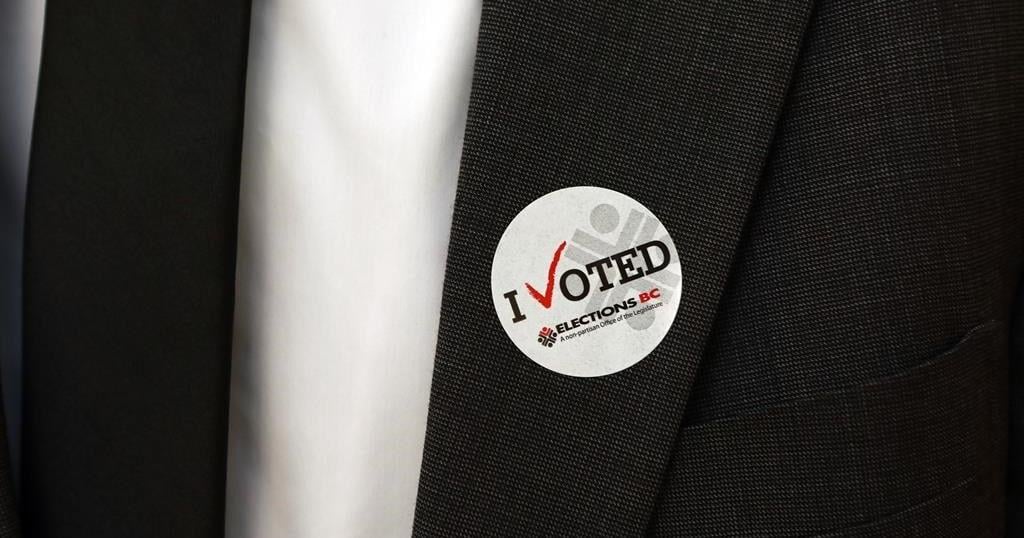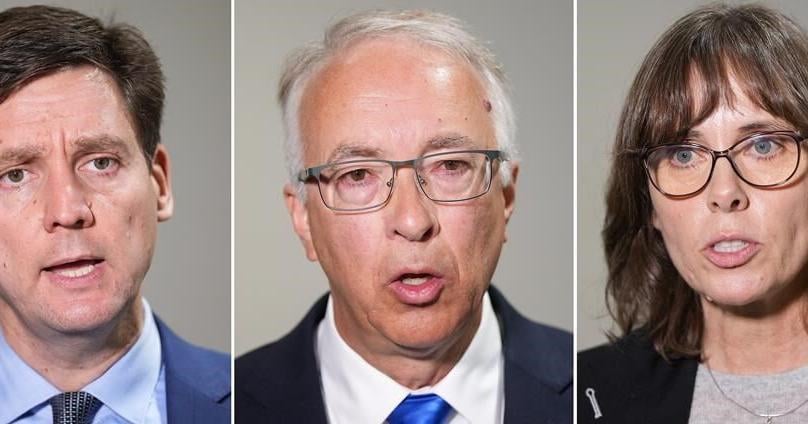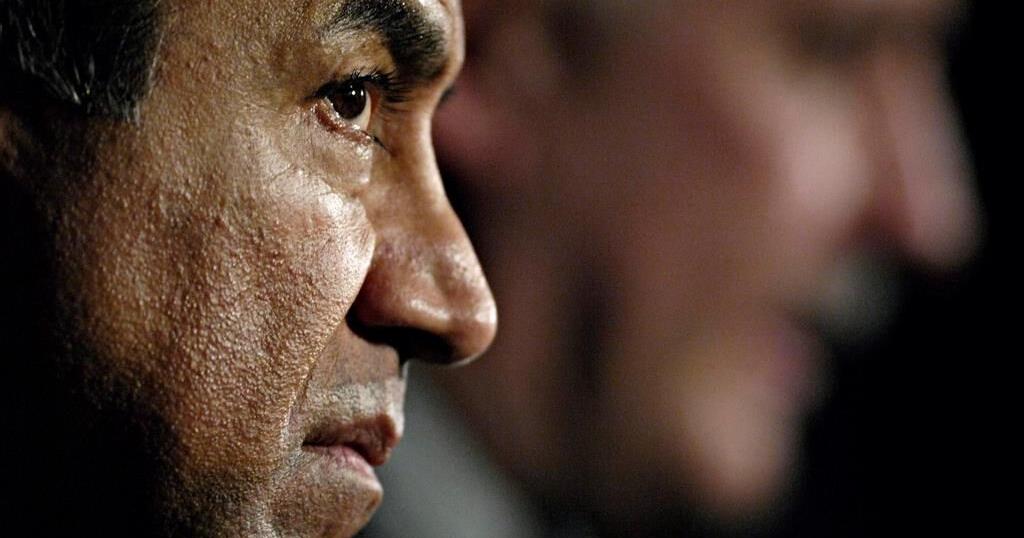CLARENVILLE, N.L. – At 2 p.m. on Thursday, the scene at the Lions Club in Clarenville, N.L., rivalled any rowdy St. John’s bar that thumps with music late on a weekend night.
The windows were steaming up, the dance floor was packed and the sold-out crowd of about 150 seniors were swinging around in pairs, asking the lead guitarist of the headlining band for one more song before he took a break.
Dan Gambin didn’t need much convincing. He put down his guitar, picked up his accordion and launched into a traditional Newfoundland jig.
“He’s a legend,” said Tess Culleton, who plays guitar and sings alongside Gambin in the Best Kind Band.
Gambin is 83 and he was diagnosed with dementia about two years ago. Though he’s beginning to have trouble with his memory, he’s still playing four instruments in two bands, and his decades-long music career shows no signs of slowing down.
“I love the music, I always did, b’y,” Gambin said in an interview earlier in the week, strumming a guitar as he spoke at his daughter’s house in St. John’s.
“The communication between the band and the people, that’s what it’s all about.”
Gambin has been driven to play music for most of his life. He grew up in Clattice Harbour, a tiny community in the folds of Placentia Bay that at the time was home to about 120 people. Clattice Harbour’s residents fished during the day and got together at night to visit, sing and play music, Gambin said.
He figures he was about 10 years old when he bought his first accordion with money he saved from selling squid that he caught, cleaned and dried.
A guitar was prohibitively expensive, even for an industrious 10-year-old squid jigger, so he made his own by steaming and shaping planks from old apple crates. He sent away for the strings, keys and fret board, he said.
He began performing in Clattice Harbour’s one-room school, where the community would hold occasional dances for adults. Still a schoolboy, he’d sit and play his accordion in the centre of the room, amid the chaos of the swirling couples. He got knocked over a few times, he recalls, but it was the only way to be heard with no sound system.
“They’d just laugh at me, and I’m there on my back, still playing away,” he said.
In Placentia, N.L., about 50 kilometres across the bay from his hometown, he joined the popular local band the Hilltoppers and became quite well known in the area, said his daughter, Sheila Taylor. His wife and four children would follow him to some gigs, making a family vacation out of the trip, she added.
The Best Kind Band formed during the height of the COVID-19 pandemic. There are typically eight members, ranging in age from 59 to 88, and they help Gambin remember when he’s got a practice or a gig, said singer Cindy Fulford.
She sits beside Gambin when they play so she can give him a nudge to cue him in or tell him he’s on the last bar of his solo, she said.
“The whole group, no doubt about it, we depend on each other,” Gambin said.
“We do,” Fulford agreed. “We’ve become family.”
The band is booked and busy. They play at churches and seniors homes and community dances, like the bash in Clarenville, N.L., on Thursday afternoon. The Oktoberfest event was hosted by the community’s 50-plus club and the local Lions Club, and MC Glenn Ploughman said it sold out last month.
“This is our music,” he said, grinning and raising his voice so he could be heard over the band and the racket on the dance floor.
“Best kind” is a Newfoundland expression that, for Fulford, means not perfect, but still pretty great. “We’re the Best Kind!” she called out to the crowd at one point Thursday, laughing after the band had to take a second shot at the first few notes of a song.
The audience was indifferent to the flub. They filled the dance floor seconds after each song began, hooting, clapping and belting out the lyrics to Johnny Cash’s “In Them Old Cottonfields Back Home” and Eddie Coffey’s “Grey Foggy Day” along with Fulford and the band. A man draped in ribbons of blue raffle tickets spun his way through the crowd raising money for local charities.
After seven decades of performing, Gambin said he has a simple test to determine if he’s playing well and still giving audiences what they’re after: “Watch the floor.” And on Thursday, the floor was best kind.
This report by The Canadian Press was first published Oct. 20, 2024.






















